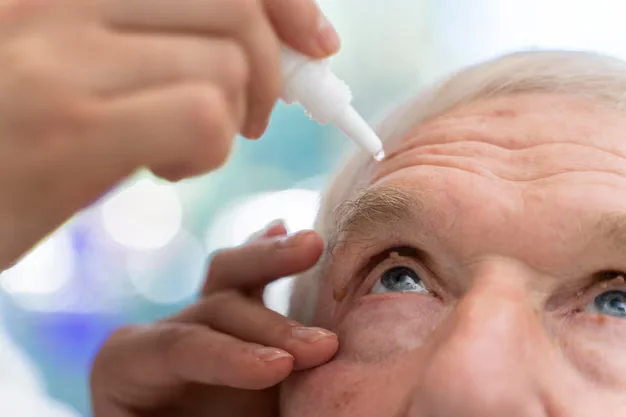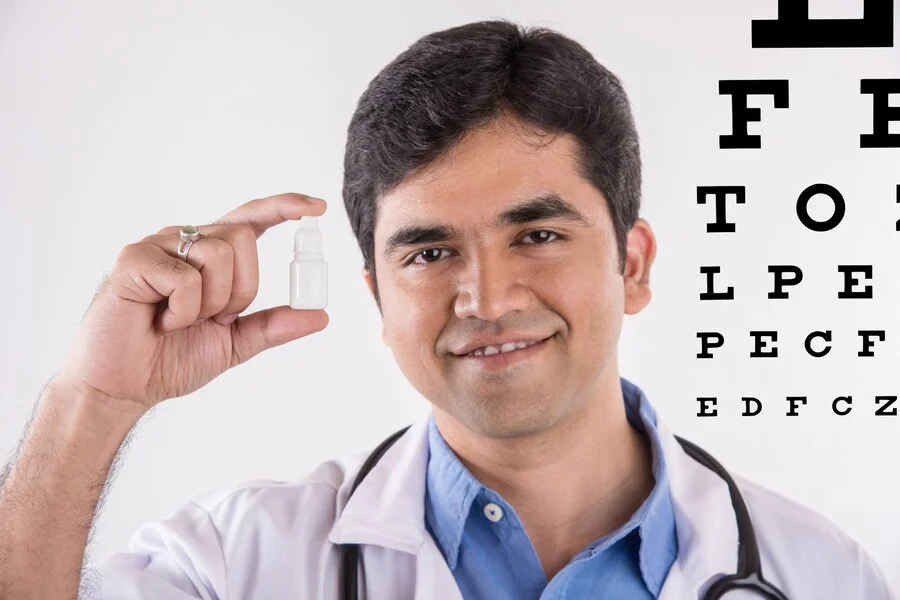Dry eyes, often dismissed as a minor irritation, can be a serious condition with far-reaching consequences. This common ailment occurs when your eyes don't produce enough tears or when the quality of your tears is poor. While it might seem like a simple discomfort, the repercussions can significantly affect your vision, overall health, and quality of life.
Hence, regular eye examination is important to keep your eyes away from different types of problems. You can schedule an appointment at Elite Eye Care, to get your eyes checked.
In this comprehensive guide, we will understand the dry eyes, and explore its causes, symptoms, and treatment options.
Understanding Dry Eyes
Your eyes are constantly bathed in a tear film, a complex mixture of water, oil, and mucus. This film keeps your eyes moist, clear, and protected. When this delicate balance is disrupted, dry eye syndrome sets in.

Common causes of dry eyes include:
Aging: As we age, tear production decreases.
Environmental factors: Dry air, wind, and smoke exacerbate dry eyes.
Medications: Certain drugs, including antihistamines, antidepressants, and blood pressure medications, can contribute to dry eyes.
Medical conditions: Conditions like rheumatoid arthritis, Sjogren's syndrome, and thyroid disease can affect tear production.
Contact lens wear: Improperly fitting or overwearing contact lenses can cause eye irritation.
Digital eye strain: Excessive screen time can reduce blinking, leading to dry eyes.

The Hidden Dangers of Dry Eyes
While dry eyes often manifest as mild discomfort, the underlying issues can be more serious.
1. Vision Problems
Blurred vision: Reduced tear production can interfere with clear vision.
Eye fatigue: Constant dryness can strain your eyes, leading to fatigue and difficulty focusing.
Halos: You may see halos around lights due to irregularities in the tear film.
2. Corneal Damage:
Corneal ulcers: Severe dry eyes can cause open sores on the cornea, the clear front surface of the eye. These ulcers can be painful and lead to vision loss if untreated.
Corneal scarring: Chronic dry eyes can result in scarring of the cornea, affecting vision permanently.
3. Increased Risk of Infection:
Conjunctivitis: Dry eyes create a breeding ground for bacteria, increasing the risk of pink eye.
Blepharitis: Inflammation of the eyelids often occurs in people with dry eyes, leading to crusting and flaking.
4. Impact on Quality of Life:
Pain and discomfort: Dry eyes can cause significant pain, burning, and itching.
Difficulty with daily activities: Tasks like reading, driving, and using computers can become challenging.
Emotional distress: Chronic dry eye can lead to frustration, anxiety, and depression.
Symptoms of Dry Eyes
Recognizing the symptoms of dry eyes is crucial for early intervention. Common symptoms include:
- Dryness or a gritty sensation in the eyes
- Burning or stinging
- Itching
- Redness
- Blurred vision
- Sensitivity to light
- Feeling like something is in the eye
Excessive tearing (ironically, sometimes dry eyes can cause excessive tearing)
Treatment and Prevention
If you suspect you have dry eyes, it's essential to consult an eye care professional for a proper diagnosis and treatment plan. Treatment options vary depending on the severity of the condition.
Artificial tears: Over-the-counter artificial tears can provide temporary relief.
Prescription eye drops: For more severe cases, your doctor may prescribe medicated eye drops.
Lid hygiene: Cleaning your eyelids regularly can help remove debris and reduce inflammation.
Warm compresses: Applying warm compresses to your eyes can help loosen oil glands.
Omega-3 fatty acids: Supplements may help improve tear quality.
Lifestyle changes:Reducing screen time, using humidifiers, and avoiding dry environments can help manage symptoms.
Preventing dry eyes involves a combination of factors:
- Regular eye exams
- Limiting screen time
- Using artificial tears preventively
- Protecting your eyes from environmental irritants Redness
- Eating a healthy diet rich in omega-3 fatty acids
Dry eyes should not be underestimated. By understanding the dangers and taking proactive steps, you can protect your eye health and maintain a good quality of life. If you experience persistent dry eye symptoms, book appointment at Elite Eye Care, New York. Early intervention can prevent serious complications and restore comfort to your eyes.
